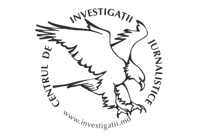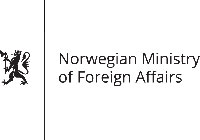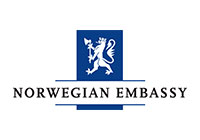.jpg)
Doug Squires, anti-corruption expert in US, University Professor at the Ohio State University and federal prosecutor within the US Department of Justice came to Chisinau. He met prosecutors and representatives of the National Bank and shared his experience. In an interview for portal Anticoruptie.md, he said that to get public trust in a system, you have to be sure that the rules are the same for everyone.
Anticoruptie.md: You had meetings with representatives of several important institutions – Prosecutor’s Office and the National Bank of Moldova. What were the priorities in the discussions and your recommendations for authorities in Chisinau?
Doug Squires: I came as a speaker to share my experience as prosecutor and also with some of my efforts in other countries like Georgia, Egypt and other places where I’ve been. I gave them my best practices. Representatives of the National Bank, the prosecutors and the regulators, all of them wanted to know what we do in the US to do things right. We do not have a perfect system but we have a good enforcement and they asked me case examples. I had meetings with different groups within 2 days. We analyzed case examples and I used slide shows in my discussion. They were interested and asked questions. What did I recommend? Basically, it is accountability and transparency. All people should be accountable, doing their best for the benefit of justice when something happens or as a regulator to hold them accountable through possible penal or administrative consequences. Transparency is just promoting the rule of law, make transactions open because open transactions are more legal than closed transactions. When you have a close session, a trial- you do not know what happens behind closed doors but when it is open, it is clearer. Your activity of investigative journalism is very important for uprooting corruption. You reveal and show what really happens. It is very important for you to collaborate with law enforcement; they can get indicators about a fraud and start their own investigation. You should not care about agent or impartiality, because you do the right thing if you collaborate with them.
Your biography shows that you were responsible of one of the most important criminal cases in the economic-financial field in US. You probably heard that Moldova has recently passed through a so-called robbery of the century in the banking sector and the investigation has not advanced that much. What are the chances that this case will ever be elucidated, in the situation of Moldova – a country hostage to the never-ending transition where there’s no political will?
I do not know the facts what really happened, but I can tell you that if something like that had happened in my country, the case would have been intensively investigated, with dedication by teams of prosecutors, regulators, representatives of the civil society, all get together figure out what is the best way for investigation of what happened. We make sure to have exchange of information and evidence because cooperation and coordination are crucial in such cases.
Money leaves tracks. What are the chances of recovering the billion in Moldova?
I want to tell you that I was encouraged by the interest shown within the discussions, in listening, exchange of ideas; all these give me optimism that something can happen or should happen…
The investigative journalists showed the luxury life of many judges and prosecutors from Moldova, one of the poorest countries in Europe. How can we get rid of corrupted people who should in fact fight corruption or take fair court decisions?
Prosecuting corruption needs to be done very actively, in a perseverant way. Let me give you an example: I work with the police as officer of law bodies. The police give me the cases and I bring them to court, but the same policemen know that if they commit a corrupt act, I will prosecute them. So, I am sitting at the same table with the police, we are on the same side, but they know that I can be the person to take them to court if they violate the law. I always did like that. The judges on their turn are in the same situation, because you actually send them the same message: if you find a violation, you must act based on law.
Currently, the Prosecutor’s Office undergoes a big and important reform. Many law experts say that we need a critical mass in the prosecutor’s office that will produce the real change. How can we establish it?
Establishing an effective rule of law in the country, so that people see and understand results. Normally, there should exist a public level of trust in prosecution bodies and in that of magistracy, that they will do their job well. If this does not happen, you have to establish this rule of law, law must be respected more than anything else. Anyone who puts in pocket money which does not belong to him/her, hurts the society. It is the same thing with the money laundering: it seems that it is not a big deal, you move some money from one side to another, when, in fact, by laundering money you undermine a whole banking system, the transparency, the legitimacy of the bank through which this money was laundered. As a consequence, for public trust in a system, you have to be sure that the rules are the same for everybody”.
Panama Papers has earth-quacked many governments and the investigations followed. In your opinion, how much freedom should the off-shore companies have in a country like Moldova?
To do business in the US, for example, you have to be transparent all way through. There is an enormous burden under the person who wants to do a business or open a bank. It is hard enough to unbind a bank or a business that already exists, but the government has the burden of extra work to do, to act behind the scenes. An off-shore zone is a black hole, you would never be able to determine what happens there, it is a dead end. That is why, it is very important that when the regulatory norms were established in the last 20-30 years which became stronger, we allow just transparent businesses, nobody asks about the final beneficiary of the money. This is valid for all situations. There must be a clear rule that for doing business, you must show that you are clean. Also, you must show who controls the business and who the final beneficiary is.
Has someone ever tried to bribe you in your career?
This is a very good question and my answer is No, never. I think it is because of the reputation of Justice in the US, nobody tries to do it. I cannot say that this never happened in my department because we investigate law people but we work hard to build an environment where people are afraid to bribe. Reputation is very important.
Thank you!
Comments
Donors:






Partners:









